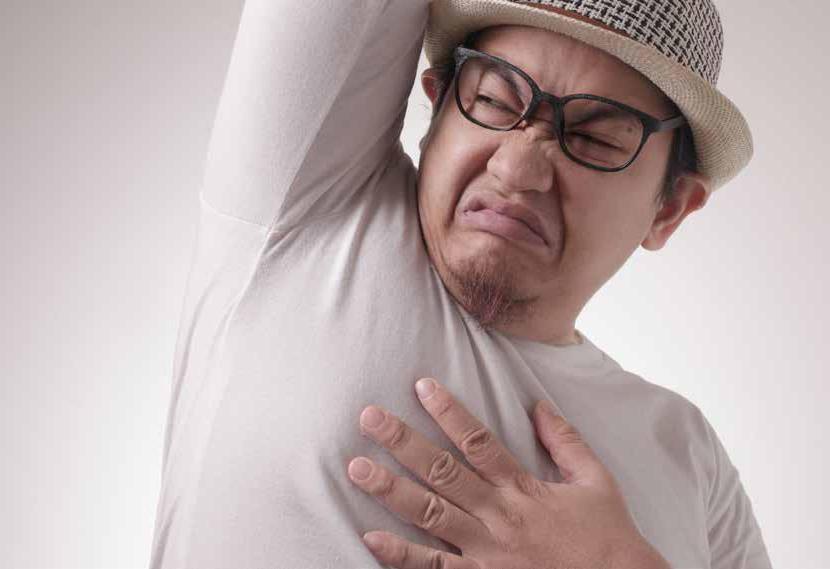Prøve GULL - Gratis
Sorry for My Scent
PRIME Singapore
|October - November 2025 Issue
Understanding, Coping With, and Conquering Body Odour
-

For something so deeply human and universal, body odour remains an uncomfortable subject, one that is often whispered about or dealt with discreetly. Most people experience it to some degree, yet few openly discuss it. Despite this silence, body odour, scientifically referred to as bromhidrosis, is a topic worth exploring, not only because it is a natural byproduct of the human body but also because it can sometimes signal underlying health issues, affect social dynamics, and impact mental well-being. Understanding what causes body odour, the potential problems it can create, and how it can be managed offers a compassionate and empowering way forward for those affected by it.
WHAT CAUSES BODY ODOUR?
Body odour is what you smell when your sweat comes in contact with the bacteria on your skin. Sweating is the secretion of fluids by sweat glands onto your skin's surface. Human beings have two main types of sweat glands: eccrine and apocrine glands. Eccrine glands are found all over the body and produce a watery sweat that helps regulate body temperature. They secrete sweat directly onto the surface of your skin. Apocrine glands, on the other hand, are concentrated in areas such as the armpits, groin, and around the nipples. They open up into your hair follicles. These glands become active during puberty and secrete a thicker, milkier type of sweat that is rich in proteins and lipids. The sweat produced by these glands can smell when it comes in contact with bacteria on your skin.
Interestingly, sweat itself is virtually odourless. The characteristic scent we associate with body odour is not due to the sweat directly, but due to the bacteria that live naturally on the skin. When sweat from apocrine glands mixes with these bacteria, particularly Corynebacterium and certain species of
Denne historien er fra October - November 2025 Issue-utgaven av PRIME Singapore.
Abonner på Magzter GOLD for å få tilgang til tusenvis av kuraterte premiumhistorier og over 9000 magasiner og aviser.
Allerede abonnent? Logg på
FLERE HISTORIER FRA PRIME Singapore

PRIME Singapore
Warm Rice & Lentil Salad with Roasted Vegetables
Beauty focus: Collagen protection and energy balance. Fibre-rich SōngHè Plus rice and lentils keep you full and energised, while roasted vegetables supply antioxidants that combat skin stress and promote youthful vitality.
1 min
December - January 2026

PRIME Singapore
Canned or Not?
The Hidden Truth About Canned Foods and Bottled Health Drinks
17 mins
December - January 2026

PRIME Singapore
It's a Wild World
Biodiversity: The Web of Life and Why It Matters
13 mins
December - January 2026

PRIME Singapore
Jet Fighter
Kungfu Superstar Jet Li Makes His First Movie Appearance in Five Years with Blades of the Guardians
26 mins
December - January 2026

PRIME Singapore
A NEW AGE OF WELLNESS
Wellness 2026: The Next Wave of Personal, Preventive, and Purpose-Driven Health
16 mins
December - January 2026

PRIME Singapore
Jump to a Great Start!
JumpStart Instant Energy Cream Helps You Overcome Muscle Fatigue and Enables Faster Recovery
2 mins
December - January 2026

PRIME Singapore
The Lean Life
Lean Thinking: The Art of Doing More with Less
9 mins
December - January 2026

PRIME Singapore
Herbed Rice Fritters with Greek Yogurt Dip
Beauty focus: Gut-friendly goodness for clear, healthy skin. Fibre from SōngHè Plus supports digestion and gut balance, while protein-rich yogurt adds probiotics for inside-out glow. These crisp, golden fritters are wholesome, flavourful, and perfect for light meals or snacks.
1 min
December - January 2026
PRIME Singapore
Two Steps to Timeless Beauty
Holistic Way Essentials Super Kombucha Detox Enzymes & Super Tri-Peptide Collagen Shot 15,000mg: The Signature Duo for Daily Radiance
4 mins
December - January 2026
PRIME Singapore
Stronger Decades Later
How Xandro® Protocol X® Supports the Way You Want to Age
2 mins
December - January 2026
Listen
Translate
Change font size
